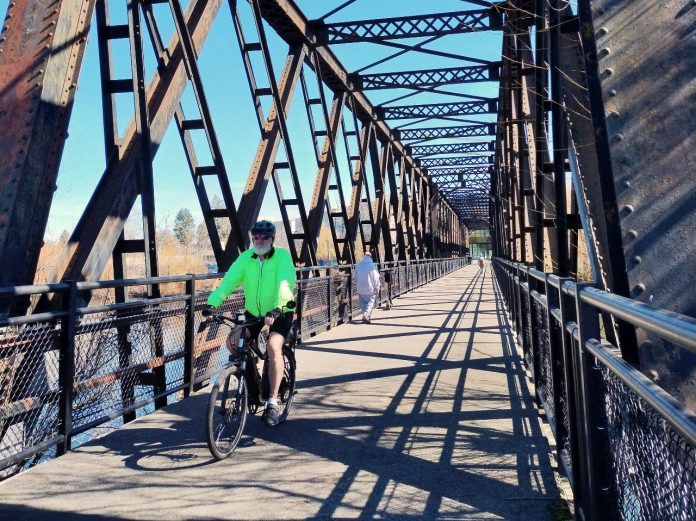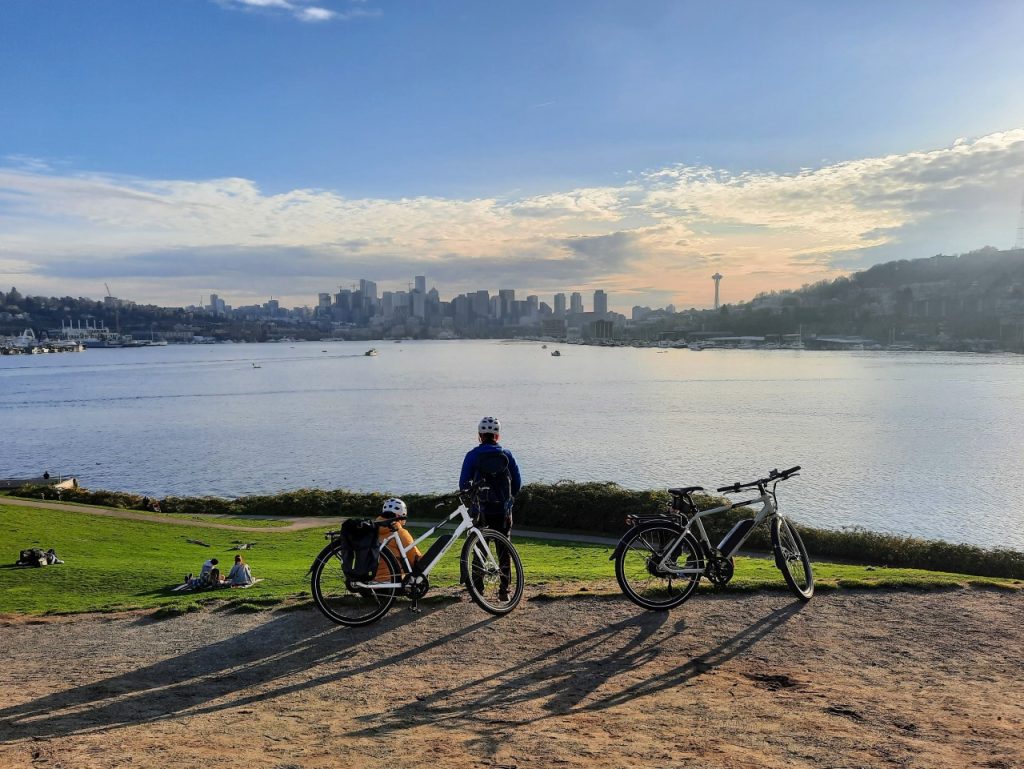
Rebate lottery winners will be randomly selected after a two-week application period that extends through April 23.
Washingtonians in the market for a new e-bike can qualify for the chance to snag a $300 or $1,200 instant rebate starting this week. The statewide rebate program, which has been in the works for two years, will allow Washingtonians to take advantage of more than $4 million in discounts that could put the cost of a new e-bike within reach for more people. Around 10,000 rebates are expected to be disbursed, with a two-week sign up period starting Wednesday, April 9 and extending through April 23.
Anyone signing up during that time will be entered into a lottery, so e-bike purchasers don’t have to be waiting at the computers to refresh the website starting on Wednesday morning.
Only Washington residents 16 and over will be able to apply via the state’s rebate portal. To qualify for a $1,200 rebate, residents must confirm a household income at or below 80% of the median income for their county — $89,000 for a household of two in King and Snohomish County. For those who don’t meet those income limits, $300 rebates will be available instead.
A lottery system will help the state avoid the mad dash e-bike rebate launches that have been seen elsewhere, in which first-come-first-served rebates are exhausted within minutes of becoming available. Successful applicants will have 96 hours to complete their rebate applications, and another 45 days to purchase the e-bike (and potential e-bike accessories including helmets and locks) from a participating retailer. Find a list of those here.
Information about what types of e-bikes — including adaptive e-bikes and e-tricycles — qualify for the rebates will be available directly in the rebate portal starting Wednesday. For other program details, check the portal’s frequently asked questions page.
Launch of a statewide e-bike rebate likely would not have happened without the work of State Senator Sharon Shewmake (D-42nd, Bellingham). Shewmake unsuccessfully pushed to pilot a statewide e-bike sales tax exemption in 2021 and was the driving force behind the 2023 budget allocation that made the e-bike rebate program possible. That budget amendment also directed the state to develop e-bike lending library programs, for households that want to try out an e-bike before committing to owning one or just need one for a few trips here and there. Those programs are still in development.

The launch of the rebate program does come as a fraught time, with new tariffs imposed by the Trump administration likely to increase the cost of many household goods, including e-bikes. On top of that, the transportation budget approved by the state Senate late last month levies an additional 10% sales tax on e-bikes, though it now includes an exemption for some of the most common types. If it were approved, that new tax wouldn’t take effect until next year, but the move sends a conflicting signal about state support for e-bike riders and decarbonizing transportation.
While other jurisdictions, such as Denver, make e-bike rebates available on a regular basis, Washington is unlikely to repeat its rebate lottery any time soon. Cost increases on Washington’s highway megaprojects, combined with declines in fuel tax revenue, have prompted lawmakers to scramble to realign the state’s transportation budget. Additional funding for the e-bike rebate program did not make the cut, despite the fact that the hard part — setting up the infrastructure to disburse the vouchers and looping in retailers — has already been done.
One thing is clear: demand for e-bike vouchers will almost certainly outpace supply when the online portal opens tomorrow. After all, more than 80% of the state’s eight million residents are old enough to qualify for the estimated 10,000 available vouchers, giving them 1 in 650 odds, should everyone apply.
In 2024, the League of American Cyclists ranked Washington as the most bike-friendly state in the U.S., as the group also did for the period for 2013 to 2019. If any state is likely to have high bike demand, Washington is a good bet.
If e-bike vouchers ends up becoming a one-and-done program, the state will likely be leaving significant benefit on the table when it comes to improving mobility and reducing emissions. A 2022 study of Denver’s e-bike rebate program found that after the first tranche of vouchers was released, allowing over 4,700 Denver residents to purchase an e-bike, program participants reported utilizing their e-bikes for an average of 26 miles of travel every week. Those miles replaced 3.4 round trips that would otherwise have been made in motor vehicles, with 71% of respondents reporting using their gas vehicles less after purchasing an e-bike.
While the program is almost guaranteed to leave some people behind, it’s also poised to help a great deal of Washingtonians get a leg up in purchasing what is quickly becoming an essential urban mobility tool.
Ryan Packer has been writing for The Urbanist since 2015, and currently reports full-time as Contributing Editor. Their beats are transportation, land use, public space, traffic safety, and obscure community meetings. Packer has also reported for other regional outlets including Capitol Hill Seattle, BikePortland, Seattle Met, and PubliCola. They live in the Capitol Hill neighborhood of Seattle.


